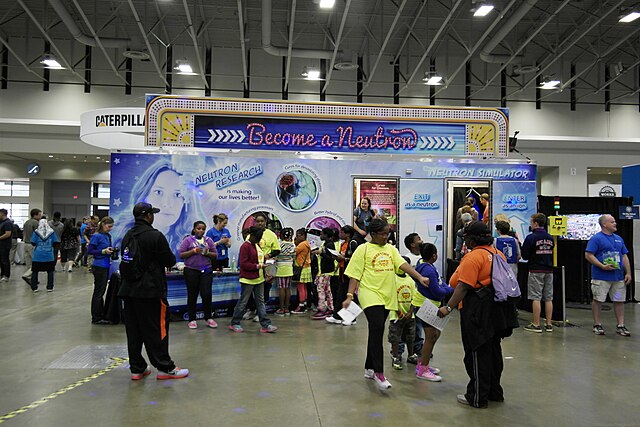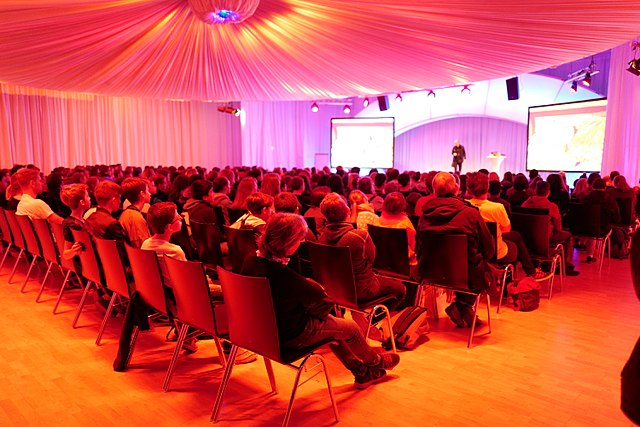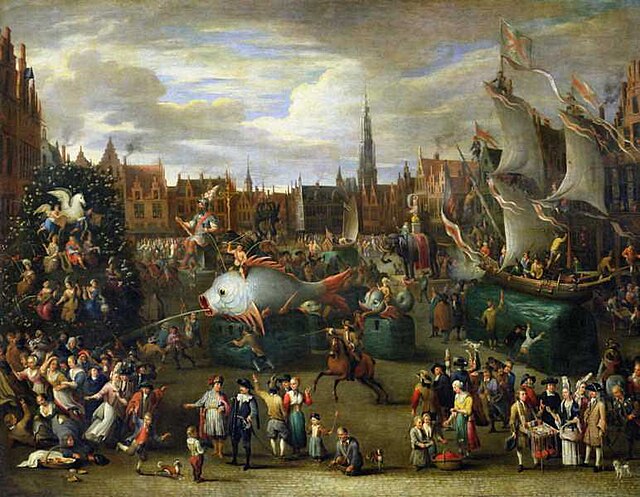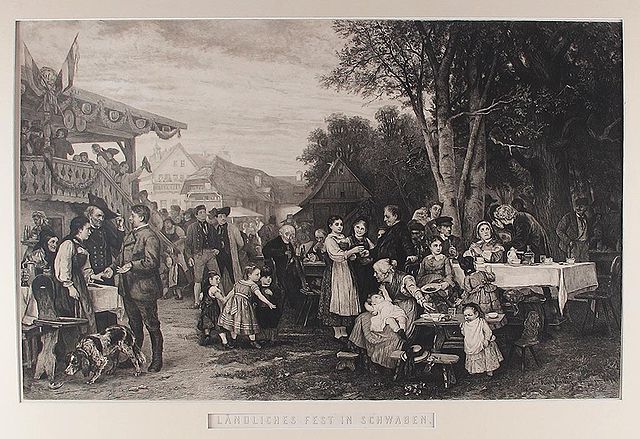A science festival is a festival that showcases science and technology with a similar atmosphere to an arts or music festival, and that primarily targets the general public. These public engagement events can be varied, including lectures, exhibitions, workshops, live demonstrations of experiments, guided tours, and panel discussions. There may also be events linking science to the arts or history, such as plays, dramatised readings, and musical productions. The core content is that of science and technology, but the style comes from the world of the arts.
"Become a Neutron" booth at the 2014 USA Science and Engineering Festival
Audience and speaker at a Science Day event in Rust, Germany
Panel discussion "What it Means to Be Human" at the 2008 World Science Festival in New York City
A festival is an event celebrated by a community and centering on some characteristic aspect or aspects of that community and its religion or cultures. It is often marked as a local or national holiday, mela, or eid. A festival constitutes typical cases of glocalization, as well as the high culture-low culture interrelationship. Next to religion and folklore, a significant origin is agricultural. Food is such a vital resource that many festivals are associated with harvest time. Religious commemoration and thanksgiving for good harvests are blended in events that take place in autumn, such as Halloween in the northern hemisphere and Easter in the southern.
Musikfest, an eleven-day outdoor music festival held annually each August in Bethlehem, Pennsylvania, is the largest free music festival in the United States, drawing over 1.3 million attendees.
The Hindu festival of Holi at Sri Sri Radha Krishna Temple in Utah, U.S.
A festival at Antwerp, Belgium, in the 17th century
A country festival in Swabia







